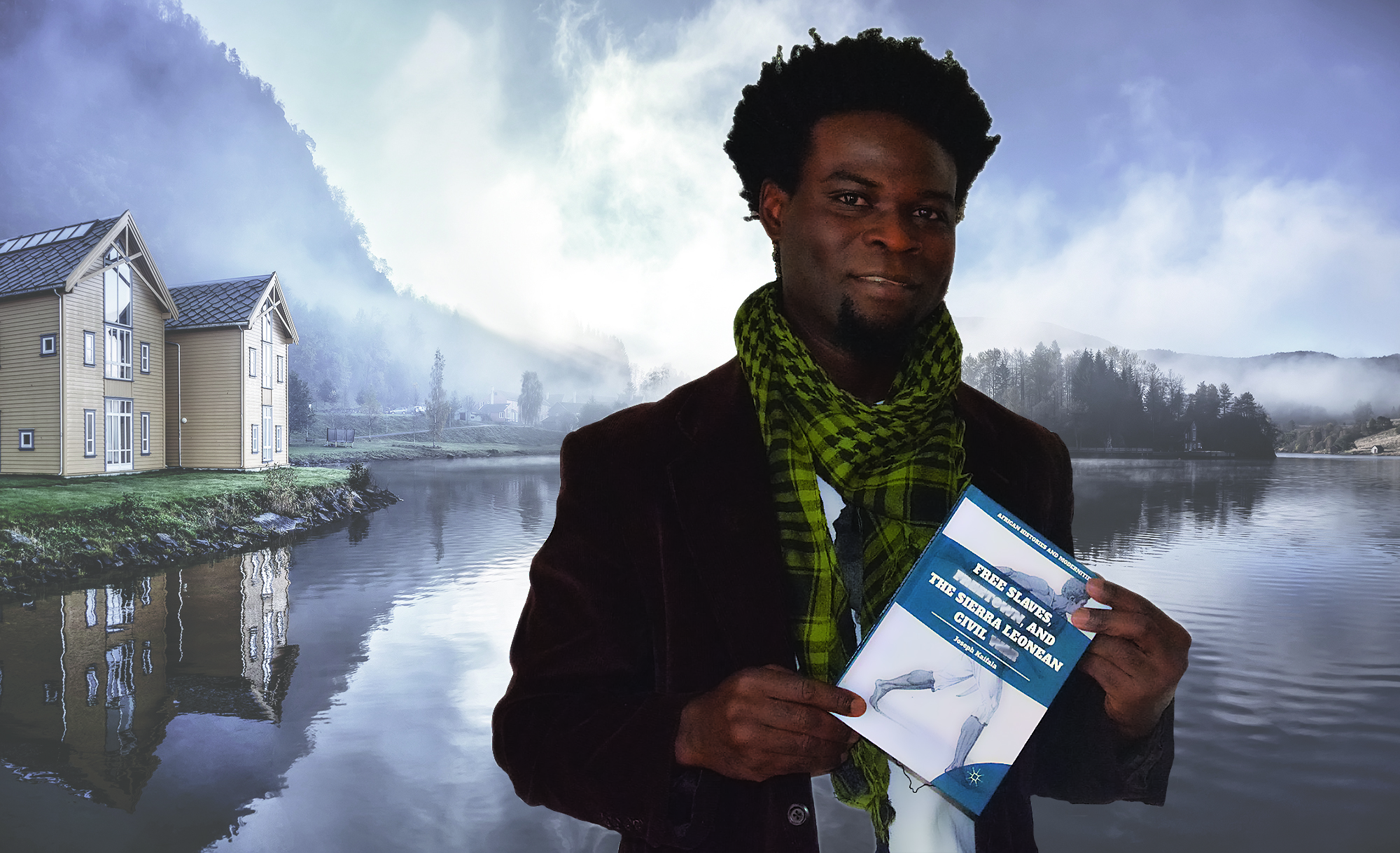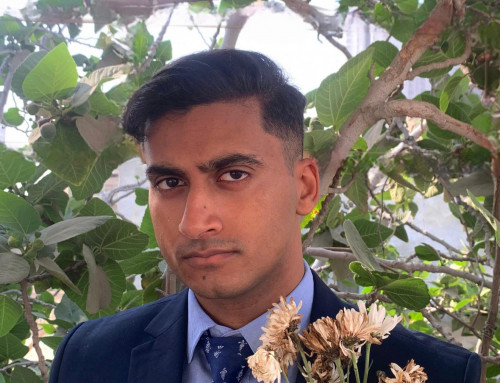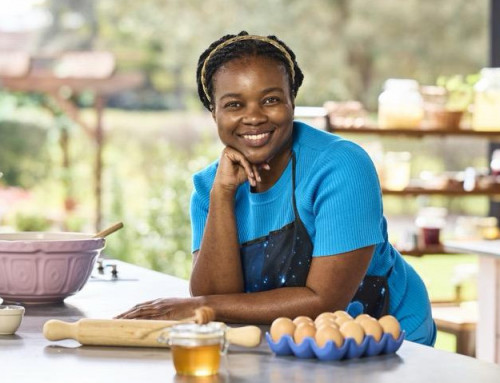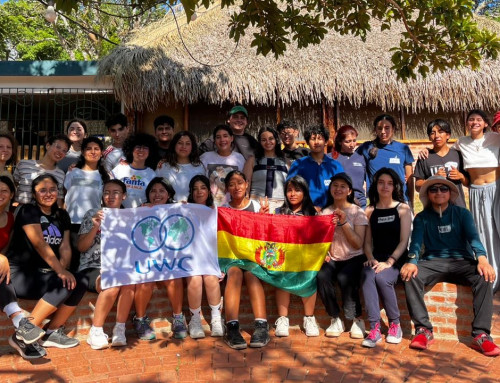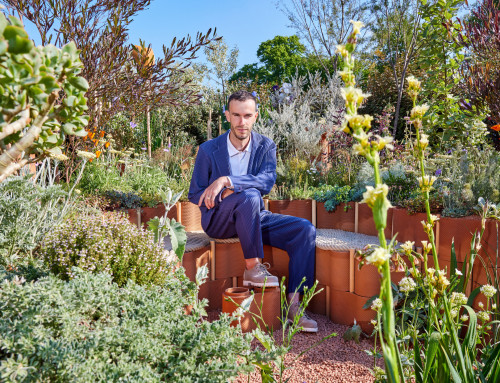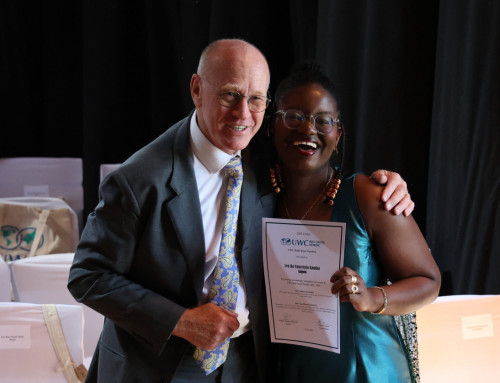There are very few people who, after other prestigious academic achievements, continue to list their high school education on their résumés and profiles. In my case, the Red Cross Nordic United World College (RCNUWC) was not simply a high school, it was a place that transformed my life and restored my hope for a life better than the one I was dealt as a child who grew up in war. This is why all my other education is a footnote to Flekke.
I went to Norway after surviving the Liberian and Sierra Leonean civil wars and living as a refugee in Guinea. My life had been a persistent struggle as a result of conflict and poverty. When I got to Flekke in 2002, orientation for new students was over, but it was obvious that my classmates had been eagerly awaiting my arrival. It was past midnight when the van that took me and another latecomer (Kipsy, Swaziland) to Flekke, but dozens of students had stayed up to welcome us. My roommates had baked a cake and my second year from Sierra Leone, Leonard, had decorated the corner that would be my space. We stayed up for at least two more hours, discussing my journey and the lives of my roommates: Talha (Pakistan), Horacio (Uruguay), Tormod (Norway), and Erik (Sweden). From the information material I had received, I had envisioned RCNWUC as a wonderful institution, but sitting in my room that first night, exchanging stories with students who spoke as though they had known me forever, made me realize that the school was greater than I had imagined.
My education before Norway had been in a refugee school system established by the International Rescue Committee and at the Sierra Leone Grammar School. As a result of limited resources, I had very little background in the sciences, unlike other African students who came from relatively stable countries. Therefore, I took an academic path in Flekke that was not usually traveled by other African students. I registered for Philosophy, Theatre Arts, Maths (Standard), Environment Science, and English Higher Level. Other Africans studied higher level sciences and almost all of them took Development Studies. It felt like my failure to take Development Studies kept me on the margins of the inner circle of our Ghanean teacher, Daniel and his wife Barbara, but these two always found a way to share their love and parent me.
I arrived in Flekke as a nervous young man, lacking confidence, and afraid of taking chances. My philosophy teacher, Aseem Shrivastava, taught me that it is not the “truth” that really matters, but the journey in the quest for “truth.” Maria Teresa (MT), my English teacher, made me understand that her love for me came with a high expectation of academic performance—and playing Okonkwo. When I hugged MT goodbye on my last day in Flekke, she said: “I look forward to seeing you in the newspapers, Joseph.” As I turned to leave, she added: “Just not in the criminal section!” Every time I came close to being bad in college, I envisaged MT’s disappointed expression as she comes face-to-face with a mugshot of me in the criminal section of the Saratogian. This thought was enough to keep me grounded.
Nothing prepared me for activism better than Peter Wilson’s Theatre Arts class. Pete is not a pedantic teacher, so we were allowed to improvise until we were collectively satisfied with our level of artistic expression. This class also allowed me to pursue my interest in studying Wole Soyinka’s Market Theatre. I chose Theatre Arts as my course for the dreaded Extended Essay. I enjoyed Pete’s sense of humor and his willingness to leave room for all students to contribute.
I was academically and socially behind many of my classmates in Flekke, so I participated in activities that improved my skills. I did my required service in the library not only to help others find books, but to grant myself ample time to read. My service as a lifeguard at the Haugland Rehabilitation Centre also allowed me to improve my swimming skills. MT and I started a new service to keep our laundry clean. Cleaning other people’s underpants and socks left in the laundry room was a messy job, but I found it humbling, and a relevant training.
Though I never became an expert skier – even with the help of Ski Week, or a promising Norwegian Folk dancer (I kicked the hat out of a window during hallingdansen), I was selected to join our team that went to Ridderrennet as volunteers and performers. In later years, I would brag about performing for the Queen of Norway there. I was also a member of the Human Rights club. My major role in the Human Rights club was to coordinate a weekly Amnesty International letter writing on behalf of Prisoners of Conscience. This service was personal because I had been a child prisoner during the Liberian war. It often made me wonder whether my time in jail would have been shorter had citizens around the world written to their leaders on my behalf.
When I launched Save the Future Generation (SaFuGe) at RCNUWC to help children affected by war in Sierra Leone, I thought it wouldn’t survive when I left. But the students that came after, with the help of MT, have continued to make me proud. I visit the website every year to read about their annual projects, which now have root in several countries. A small organization established to help the children I left behind in a war-ravaged country has now become a tool for RCNWUC students to shape the lives of people in need in other places around the world. I remain grateful to Henrieke (Netherlands), Nikolai (Denmark), and our late friend, Jonas (Norway), for their help in the early stages of SaFuGe.
Moreover, the knowledge I received from the World Today, Global Concerns, Film Night, and Project-Based Learning week, had a great impact on me. I replicated some of these ideas in college and even became head of my Model United Nations, Model European Union, and International Affairs clubs. My experiences at RCNUWC prepared me for the study of International Relations and International Law in the United States. I have recently published a book, Free Slaves, Freetown, and the Sierra Leonean Civil War (Palgrave Macmillan 2017), in which I explore the history of Sierra Leone and the legacy of slavery in that country.
I am grateful for the friends I made at RCNUWC, my mentors Alistair and Lesley Robertson, my second year roommates, Siim (Estonia), Bastian (Denmark), Niko (Germany), and Bo (China). My heartfelt gratitude goes to my first year roommates. Nothing illustrates our love better than the unanimous pact to wake up, every morning throughout our year in the same room, to Boris Gardiner’s track, I wanna wake up with you. I play this song from time to time, to remind me of you, and to take me back to that small village in Norway where human diversity and world peace are a reality.
For profiles and news of other students and alumni, click here.

